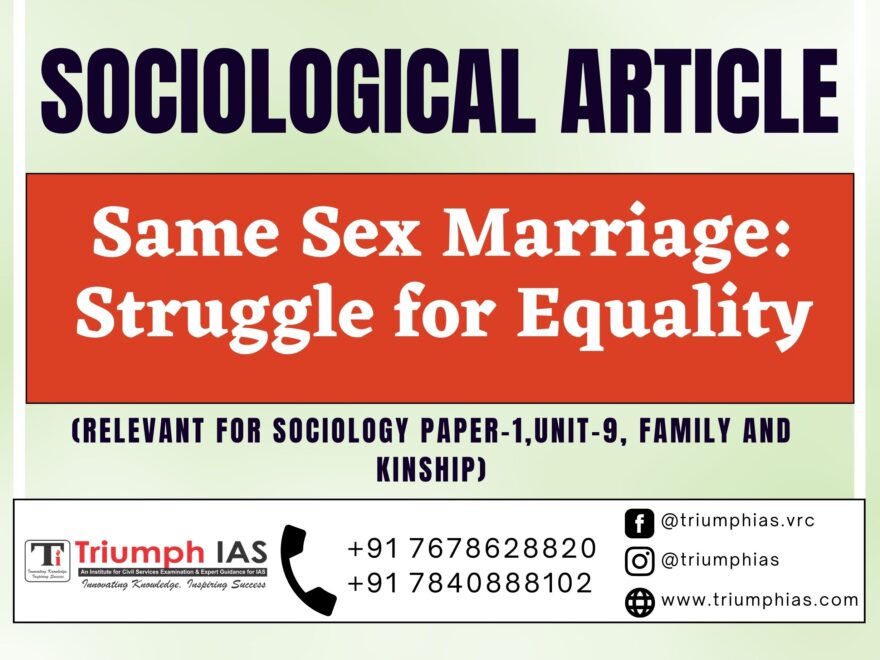- Recently, the Supreme Court of India began hearing a series of petitions seeking solemnisation of same-sex marriage under the Special Marriage Act. The Special Marriage Act of 1954 provides a civil form of marriage for couples who cannot marry under their personal law.
- In the proceedings the center advised the Supreme Court to defer the case to Parliament on the matter, stating that the law cannot be revised to permit same-sex marriage again.
- In this context, there is a need to look into the matter of Same-sex marriage and its related issues.
Sociological perspective
marriage can be defined as a socially supported union involving two or more individuals in what is regarded as a stable, enduring arrangement typically based at least in part on a sexual bond of some kind.
- Marriage serves important social functions, and social norms often determine the role each spouse takes in a marriage.
- Because marriage is a social construct, cultural norms and expectations determine what a marriage is and who can marry.
- Depending on the society, marriage may require religious and/or civil sanction, although some couples may come to be considered married simply by living together for a period of time (common law marriage).
Social Functions of Marriage
- Marriage has several social functions that are important within the societies and cultures where the marriage takes place.
- marriage dictates the roles that spouses play in each other’s lives, in the family, and in society at large. Typically these roles involve a division of labor between the spouses, such that each is responsible for different tasks that are necessary within the family.
- According to Talcott Parsons, wives/mothers play the expressive role of a caregiver who takes care of socialization and emotional needs of others in the family, while the husband/father is responsible for the task role of earning money to support the family.
- Marriage also serves the social function of determining family names and lines of familial descent.
Perspective on same sex marriage
Hironimus-Wendt argues the legalization of same-sex marriage could increase the stability of same-sex families because it allows them to function in society as equals within their community.
Legalising same sex –marriage may be functional or may be dysfunctional .however, it may be make functional by contribution of other parts of social system-government, legal system. |


